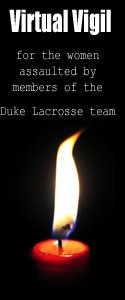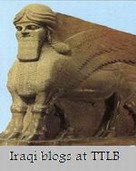Ghosts, Monsters, and the Dead
Department of Ethnic Studies and California Cultures in Comparative Perspective,
University of California, San Diego
Program in American Studies and Ethnicity, University of Southern California
Department of Ethnic Studies, University of California, Berkeley
Friday, Saturday, and Sunday March 2 – 4, 2007
University of California, San Diego
Do you have this frightening sensation that issues of race and ethnicity are being erased from public and academic discourse? This might explain why on college campuses around the country, Ethnic Studies scholars and students are often regarded as either monsters or boogeymen providing an unsettling presence. The discipline itself is often treated as a ghostly world, populated by howling specters that refuse to relinquish the sins of the past, and have therefore not been properly laid to rest. Given this declining significance of race both as an analytical tool and an object of public discussion, both the work Ethnic Studies scholars produce and the communities they are engaged with appear to be banished to an obscene world, beyond intellectual mapping or recognition, which enters into the political in an almost horrific fashion.
Within this obscene world we find three key figures, ghosts, the dead, and monsters, which are not simply anachronistic grotesque echoes of an abstract past, but rather crucial reflections of the present moment. There are the ghosts, which always embody a violence that the nation struggles to forget, and create a persistent anxiety in their resistance to their “necessary” exorcism. Then there are the walking dead, forms of bare life, which exist as objects producing sovereignty, and whose only recognition lies in the calculus of domestic tragedy or international genocide. Lastly, there are the monsters, “unnatural” existences which mark a lack of rationality, and therefore defy belief and justify violence.
The focus for the 2007 Crossing Borders Conference is to encourage the submission of papers that go beyond an engagement at the level of a formal absence, and instead engage at the level of this obscene world, by interrogating the horrifying themes of Ghosts, Monsters, and The Dead. We invite graduate students in Ethnic Studies programs or producing Ethnic Studies work to submit abstracts comprised of critical inquires which either directly or indirectly relate to these domains of “terror,” and how they are deployed, produced, and contained in processes of racialization.
The deadline for submissions is December 15, 2006 and may take the form of individual paper presentations or proposed panels. Individual submissions must include an abstract no more than 250 words, a one page CV as well as a cover sheet which provides your contact info and any AV needs. Panel proposals must contain, contact info, an abstract and CV for each presenter, as well as a description for the panel not to exceed 150 words. Please email your submissions and any questions to crossingborders2007@gmail.com
For updates and more information please head to the conference website at http://ethnicstudies.ucsd.edu/crossingborders





.jpg)








 -->
-->